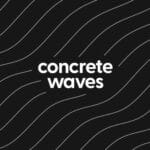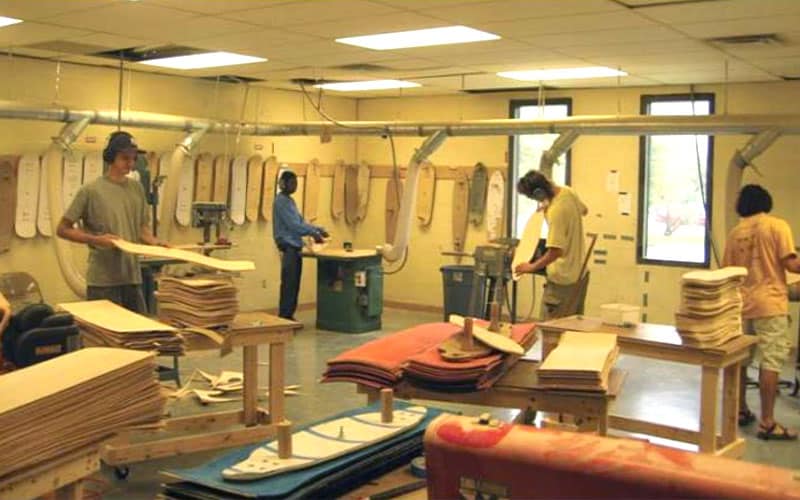In 2016, we published a profile of Andy Anderson.
Here’s part of my intro to the piece we entitled “The Game Changer.”
When Kevin Harris told me about Andy, a skater who effortfully blends street, freestyle, and vert skating into one incredible package, I was amazed. For me, Andy truly personifies the best of what skateboarding represents. Freedom to ride, freedom to explore, but most of all, the freedom to be yourself.

I wrote that eight years ago, and I think it holds true. But even more so, I think the last eight to 10 years of your career, you’ve taken that and put steroids onto it.
I really appreciate that Michael, and that definitely was a time when Kevin Harris was the guy that was hyping me up, and nobody else really wanted anything to do with me.
And it means a lot that you made that decision to put me in your magazine. I had no following, no nothing at that point. And it’s just so nice to be recognized for the things that I was getting dismissed for; the fact that I was freestyle skateboarding.
In our 2016 profile of you, Kevin Harris interviews Stacy Peralta and he asked; what strikes you as the most intriguing aspect of Andy’s abilities?
Stacy says, “his total absence of discrimination towards skateboarding. He looks at every aspect of skating as potential, which allows his mind to roam free so he can create maneuvers and connections that we have not yet seen.”
I actually have written on my desk one of the emails that Stacy sent me in 2015. I definitely would lean into the compliments that he gave me and try to emphasize those attributes, you know? So that helps a lot. I feel like Stacey is very, very spiritually aware and has this guiding essence to him.
It feels so amazing to have been recognized so young. And even when I go back and I watch the videos, I’m like, how did he see anything in that guy?
But I think freestyle and wearing a helmet and all that stuff is just so weird. I don’t know what else to say man.
Part of your mechanics as a skater is that you seem to be this unique combination of magician and artist. You see things that most people don’t. I think people feed off of that.
Art is the magician.
I always see skateboarding as an art, but recently I’ve been trying to break into the art world and it’s really hard to prove that skateboarding is an art. I know in my soul it is, but it’s really hard to show how much of an art it is and how much passion goes into it, and how much time goes into these little moments.
Because when you do a trick, it’s very ethereal. It doesn’t actually exist anywhere, you know? And when you film a trick, it’s the filmer’s art. When you take a photograph, it’s the photographer’s art. So where does my art actually exist, if not just a moment?
I just watched a video of you skating, and my jaw was dropping because at each moment where I thought there’s no way he’s gonna make it out like it’s just not possible. It’s not rescuable. And there you are, you just land on the board…
I think my skewed perception of looking at skateboarding definitely comes from the freestyle background and hating ollie tricks for so long.
Just refusing ollie tricks but still trying to skate street obstacles. I think more and more people are skating creatively these days and it’s so cool to see.
I feel like danger and speed will always kind of trump creativity, in a sense of like what’s cool/what’s respected, but I feel it’s closer than it’s ever been.
People feel so marginalized in skateboarding, right? And what you’ve done is that you alone pretty much have been able to bring all kinds of genres together. Is there something that you can point to that’s got nothing to do with skateboarding that allows you to be this bridge?
I can’t say there was any Andy before skateboarding since I did start at age four.
So I think it’s all just been skateboarding. And I think a lot of it does come down to mentors, like Hippie Mike. Hippie Mike was teaching me, and he was riding softer wheels (95A rat bones), which are totally non-conventional.
And then he was teaching me tricks like air walks and how to carve bowls. And my introduction to skateboarding was so not kickflip nose-slides. And partially because my body was so small.
I really feel like I didn’t like mainstream skateboarding so much. And then as I got older, I started to appreciate the difficulty that was there. You know, like kickflip nose slide and nollie heel front tail looked like the exact same thing to me.
So it wasn’t getting me stoked at all. And then, at that point, what was getting me stoked was boneless wall plants.
I can’t read your mind, I don’t know what’s inside you, but whenever I watch your videos, I feel like I’m riding with you, I feel included. Your whole, well-rounded approach to skateboarding somehow speaks to everybody.
Yeah, it’s very intentional. Like, for example, in my first big video part for Powell, the opening trick was the 29-stair smith grind, right? And then I do a carousel, like the truck-to-truck pogo transfer, in that same video.
I’m intentionally trying to make people understand that these are two difficult tricks. So people understand the 29-stair smith grind, but they might not ever understand how difficult a carousel is.
I definitely take the responsibility of putting different styles next to each other.
I want similar difficulty levels to be across different styles so that people can kind of bridge over. If they’d be like, I hate that trick, but I love that trick. And because I love that trick, I can understand a little bit more about that trick.
I’m intrigued to know, outside of skateboarding, what artists or philosophies have kind of nurtured this nonconformity?
You know, I’ve always been a fan of like outsider music and anti-pop, like Tom Waits or even like Frank Zappa.
I always thought it was hilarious, this one moment in Frank Zappa’s Joe’s Garage album, and they’re playing a song purposely annoying, and in the background you can hear the supposed mom of Joe going, “turn that down”, you know?
Because it’s like supposed to be annoying.
I feel like when you follow a formula that you know works, and it works again; it’s just not that exciting.
Do you have any literature or any authors who have had any impact on you?
I don’t read very much, but I do listen to audiobooks. And man, Rick Rubin’s, The Creative Act.
Holy, that verified so many internal thoughts that I’ve had and helped me clean up my brain a lot.
It was like, I have this opinion, I don’t know how valid they are, and then you have someone like Rick Rubin telling you like, this is a way and you’re like, oh, sick.
I’m on the same journey as this list of guys, that was super validating.
And the other guy I absolutely adore to death and will forever not understand is Carl Jung.
For Christmas, my mom got me the reader’s edition of the Red Book.
He brings back all of his discoveries and scientific explanations of anything to articulate the times that he had when he was writing the Red Book. So it’s these years when he was delving into his subconscious that when trying to articulate that, he ended up inventing psychology.

Your skating represents so much to what I feel the embodiment of what Concrete Waves is. You are the epitome of somebody who can ride a concrete wave. Doesn’t matter when, where or how, you’re just out there.
I had the best experience ever like two days ago. It was my first time riding in a couple weeks. And I saw this little driveway, like super mellow slope, and I was like, man, it’s gonna feel so good to do a front-side power slide just on this tiny little concrete wave, right?
And I did it and it felt great.
And then I hear it, “excuse me”.
It’s like this older couple and they got these two young children, maybe their grandchildren, or maybe their kids, I don’t wanna judge, and they go…
“Can you do that again? I wanna show my kids that.”
And like, they don’t care if I’m Andy Anderson or whatever, they just saw a dude doing a power slide on a concrete wave, man. And they’re like, I wanna share this with my kids, you know? These guys were younger than I was when I started, and it’s just like, that’s what it’s all about.



